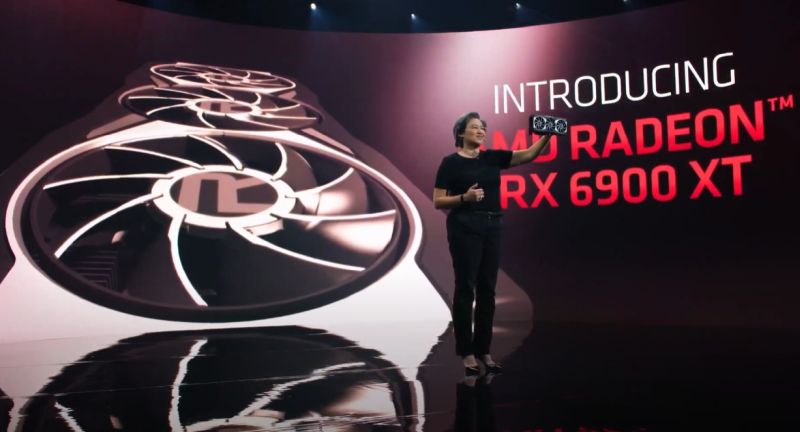At long last, and after what can only be described as an eternity, AMD has finally and officially pulled the veil back from its Big Navi graphics cards, otherwise known as the Radeon RX 6000 Series. Dubbed as “Big Navi” by fans, the high-end, RDNA2-powered Radeon lineup unsurprisingly comes in a variety of flavours.
In total, the new Radeon RX 6000 series comprises a total of three cards: the Radeon RX 6900XT, the RX 6800XT, and RX 6800. Starting with the RX 6900XT, this card is the flagship model of the trio and what was announced, the card seems poised to be a beast of a GPU. On paper, at least.
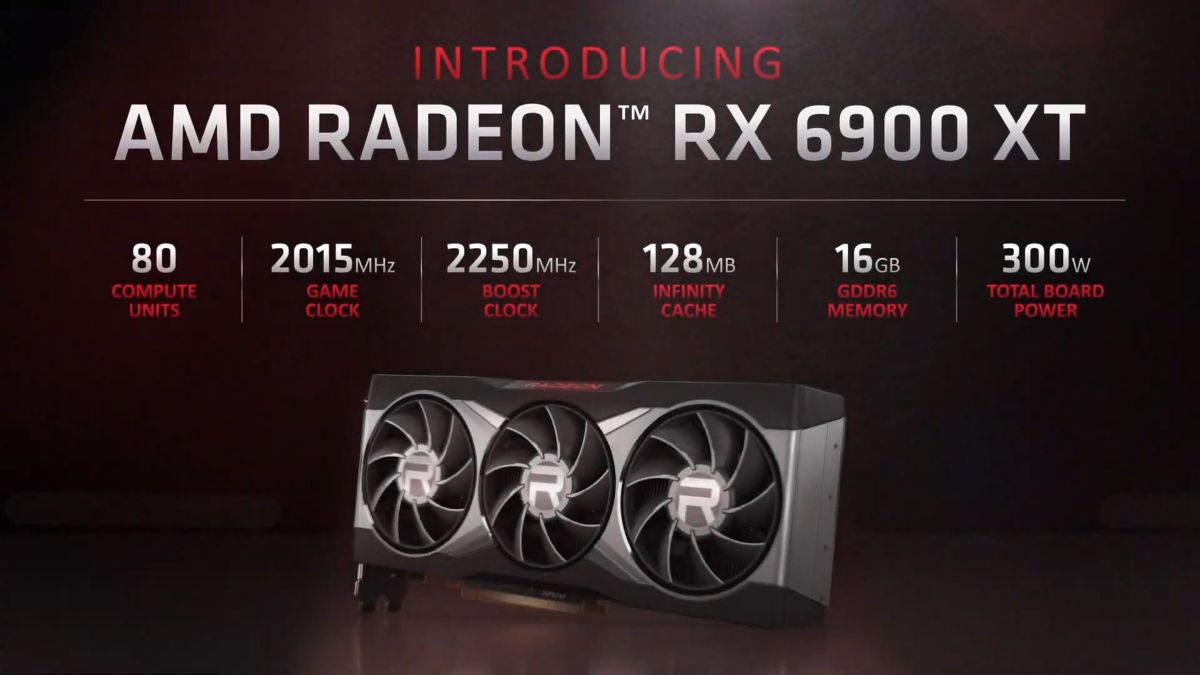
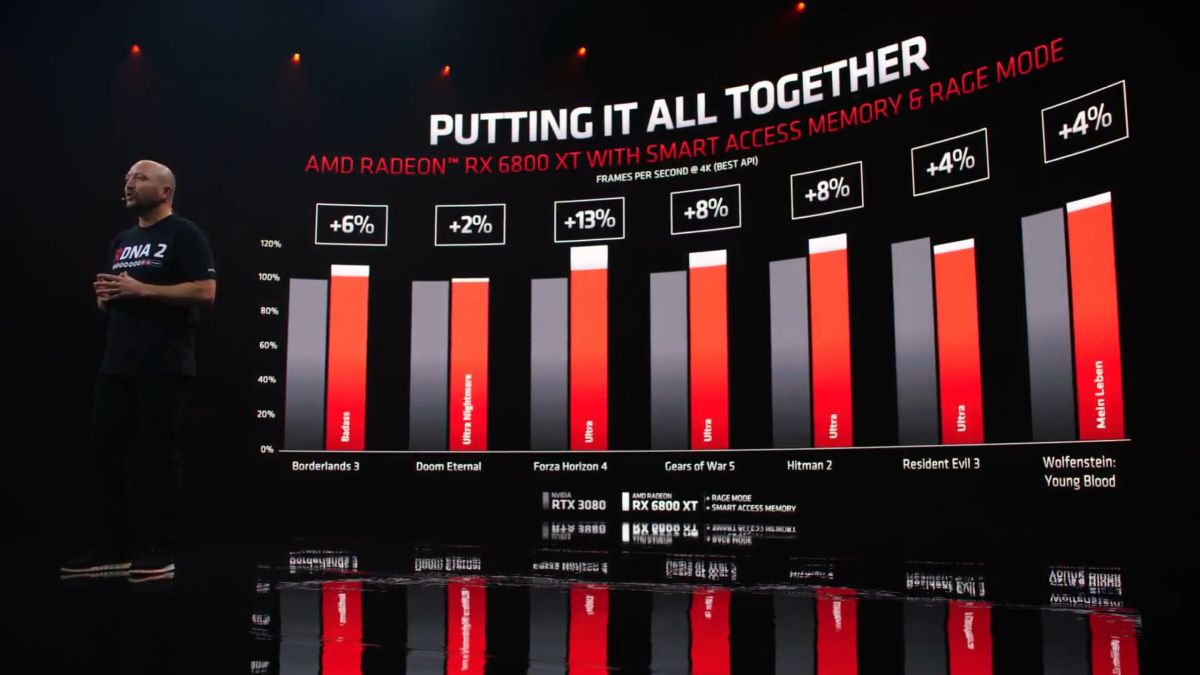
Specs-wise, the RX 6900XT features 16GB GDDR6 memory, 80 Compute Units (CUs), a game and boost clock of 2015MHz and 2250MHz respectively, access to a 128MB Infinity Cache, and has a board power requirement of just 300W. Not only that, but AMD says that to run it only requires a 650W PSU, which is significantly less than what its competition, NVIDIA, and its high-end GeForce RTX 3080 and RTX 3090 need.
In regards to its performance, AMD’s presentation shows the RX 6900XT either leading or matching its direct rival, the RTX 3090, in a selection of games.
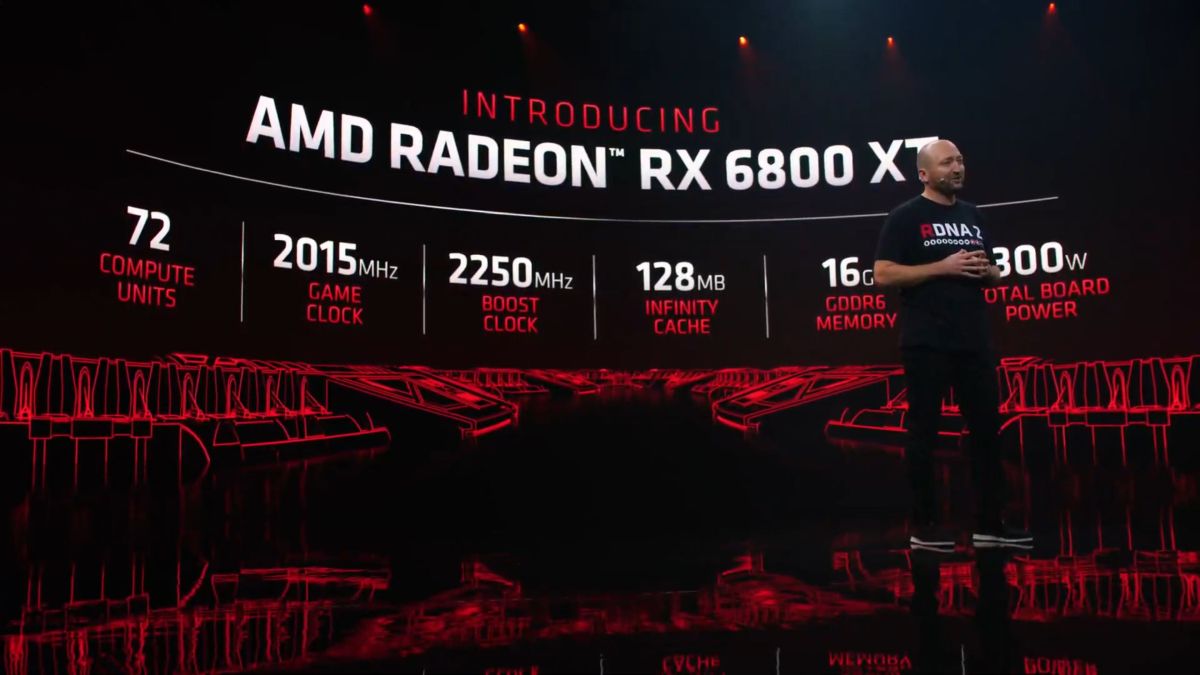
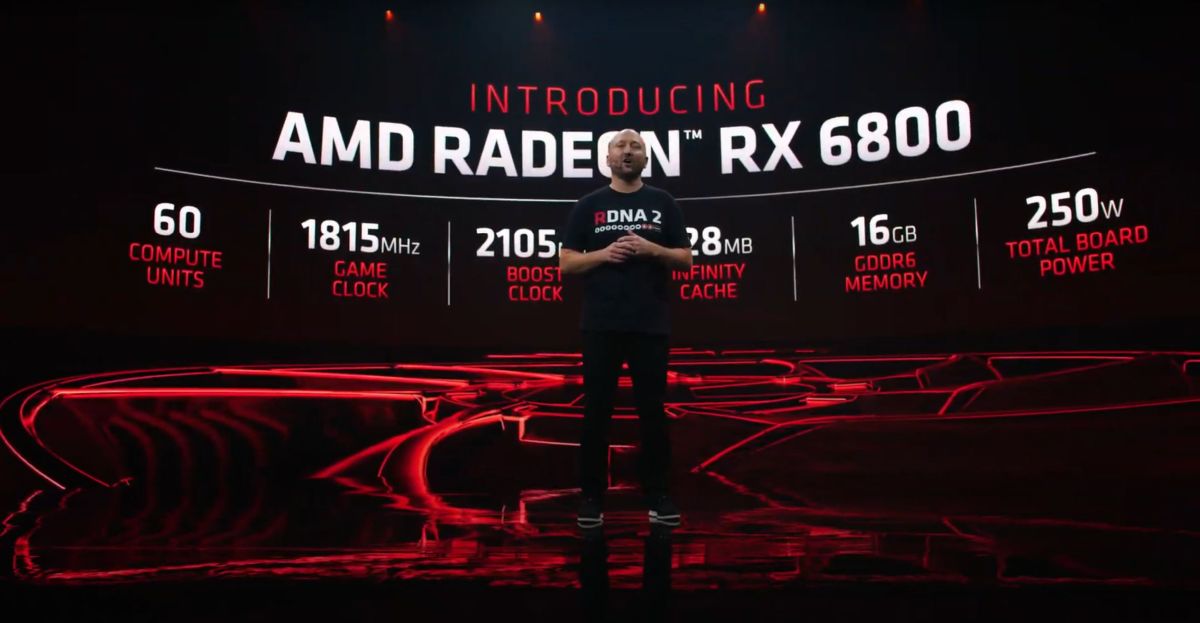
Prior to the reveal of the RX 6900XT, AMD also showed off both the RX 6800XT and RX 6800. In terms of specification, The RX 6800XT is nearly identical to the RX 6900XT, the main difference being that it has less Compute Units at 72 CUs. Otherwise, it has the same 16GB GDDR6 memory, same game and boost clock, and the same Infinity Cache and board power requirement.
Even the RX 6800XT’s 4K gaming performance versus the RTX 3080 shows a tale similar to the RX 6900XT’s performance, as do its framerates in 1440p.
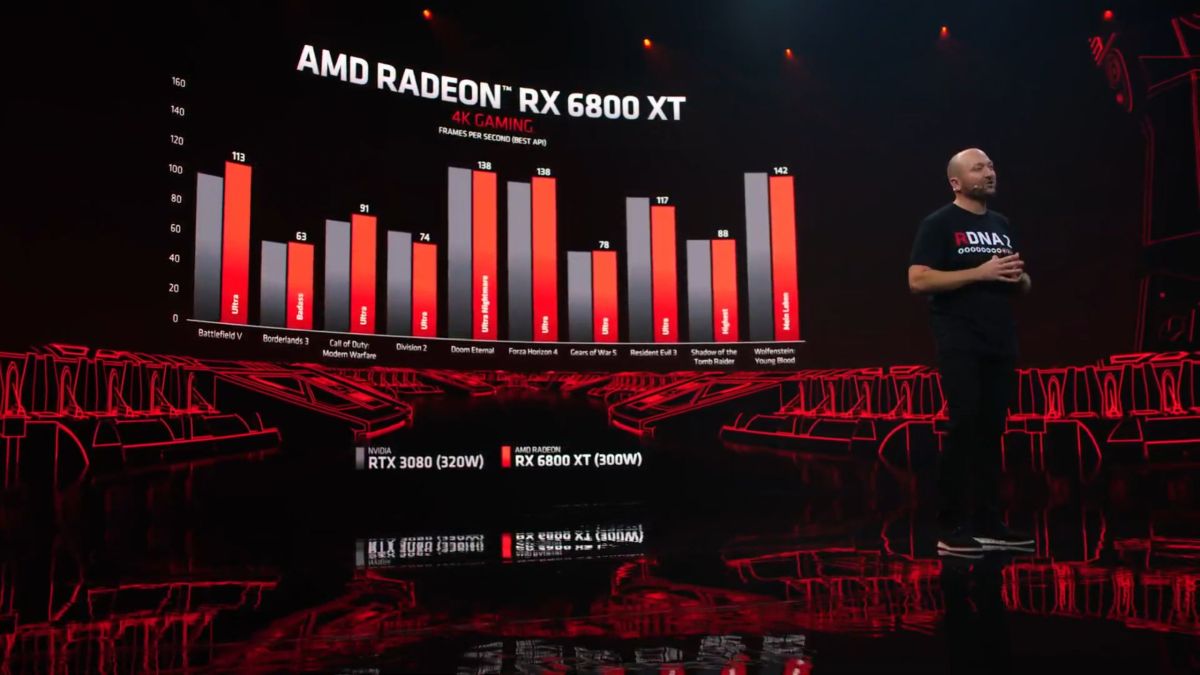
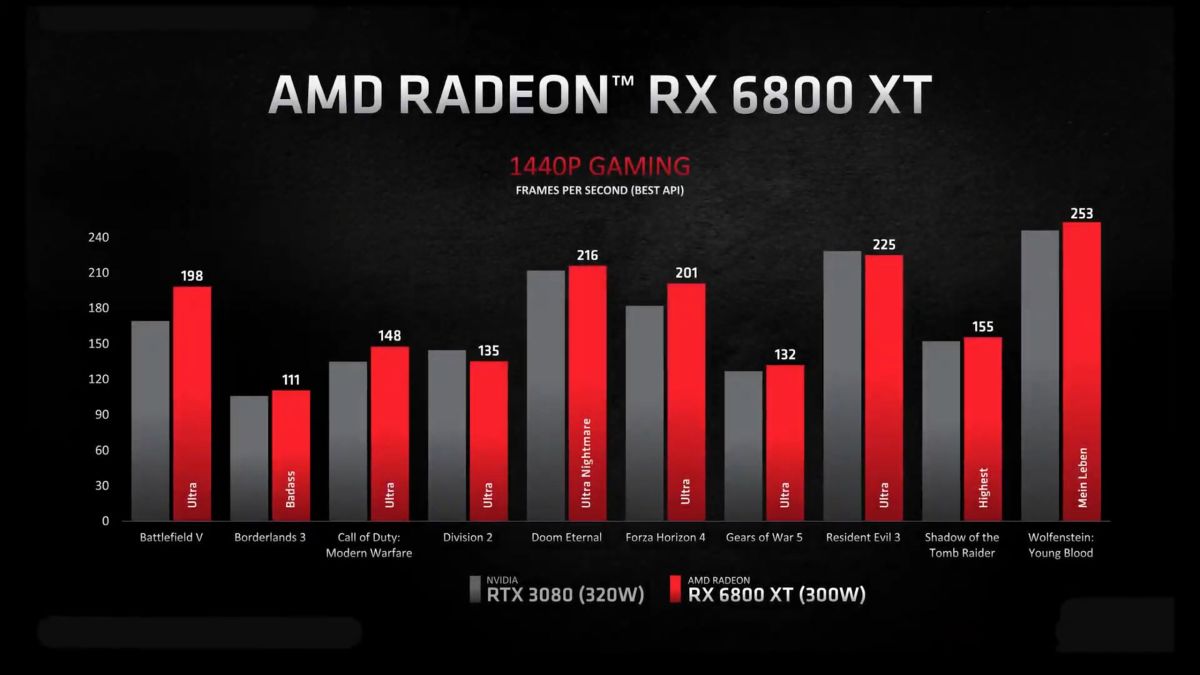
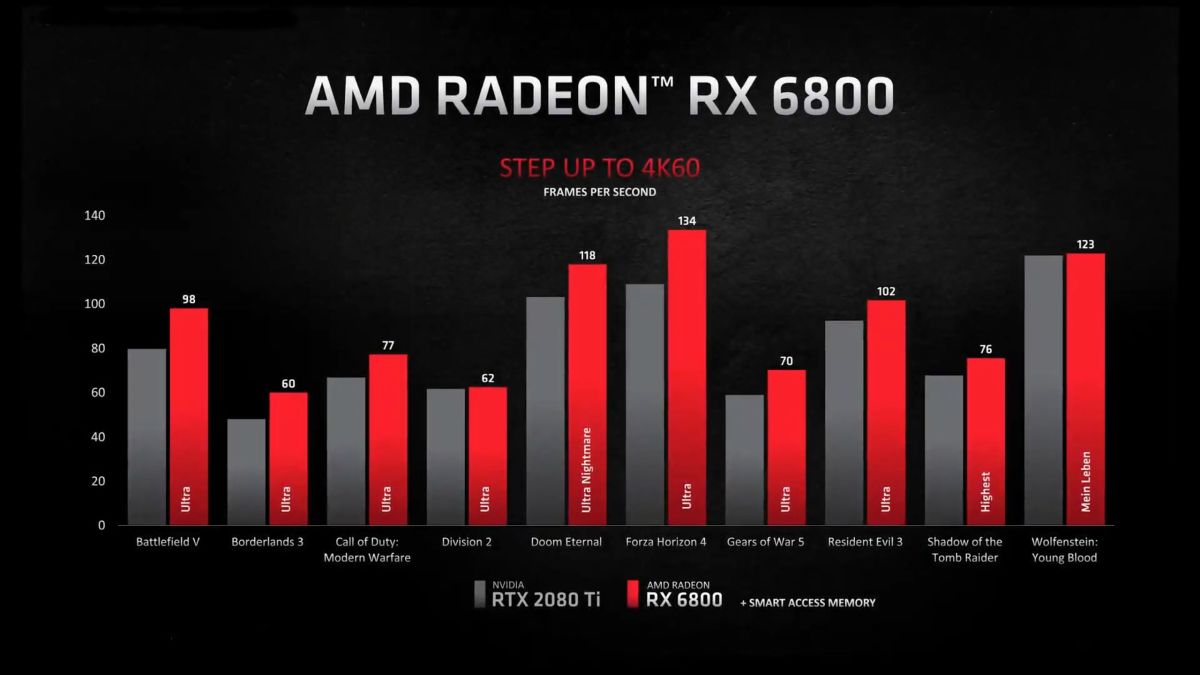
As for the RX 6800, it also comes with 16GB GDRR6 memory and 128MB Infinity Cache, but has 60 CUs, a game and boost clock of 1815MHz and 2105MHz, respectively. But a lower total board power of 250W. In terms of performance, AMD compares it to an NVIDIA GeForce RTX 2080 Ti; we find it a little odd that the company would compare it to the card and not the RTX 3070, which is scheduled to launch this week.
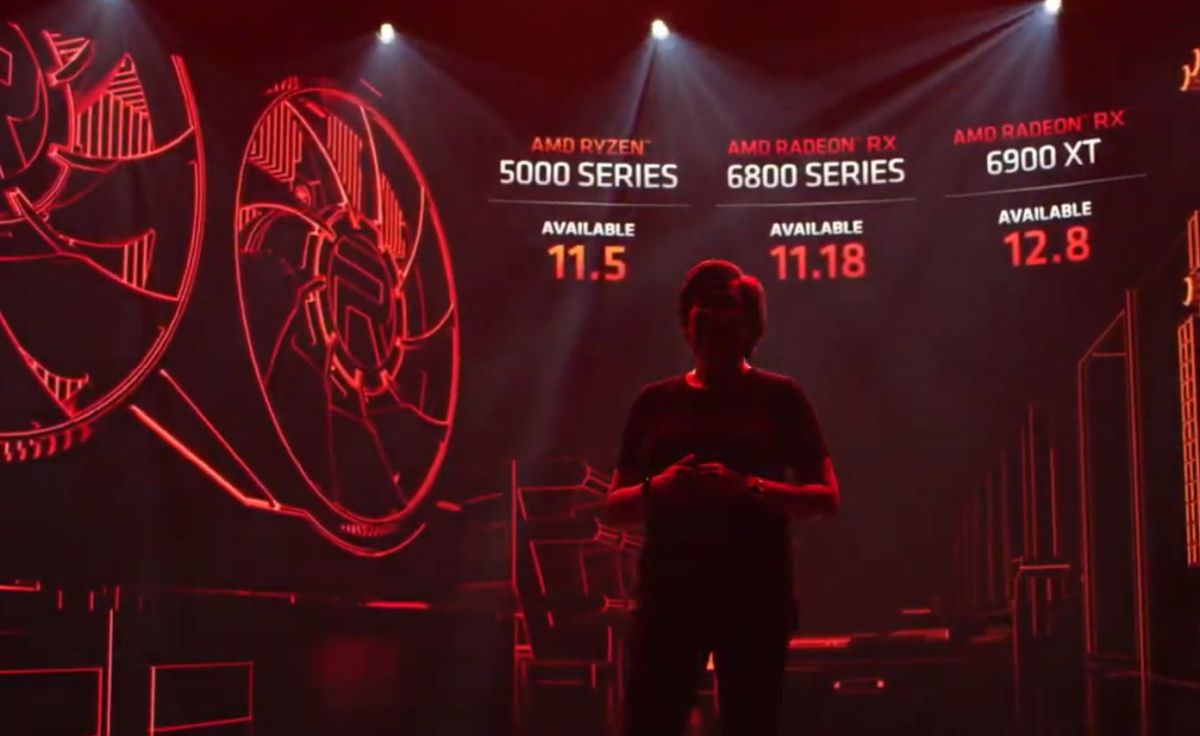
Both the AMD Radeon RX 6800XT and RX 6800 are scheduled to be available from 18 November onwards, while the RX 6900XT will only be available starting 8 December. For pricing, the RX 6800 will retail at US$579 (~RM2406), the RX 6800XT at US$649 (~RM2697), and the RX 6900XT at US$999 (~RM4152).
Of course, the new Radeon RX 6000 Series cards weren’t all that AMD announced today. Besides the new add-ins for PC, the CPU and GPU maker also spoke about a few new features and technology. First on the list was a new software tool, simply named “Rage Mode”. Basically, the tool is a one-click solution that automatically overclocks the GPU and increases its fan’s curve.
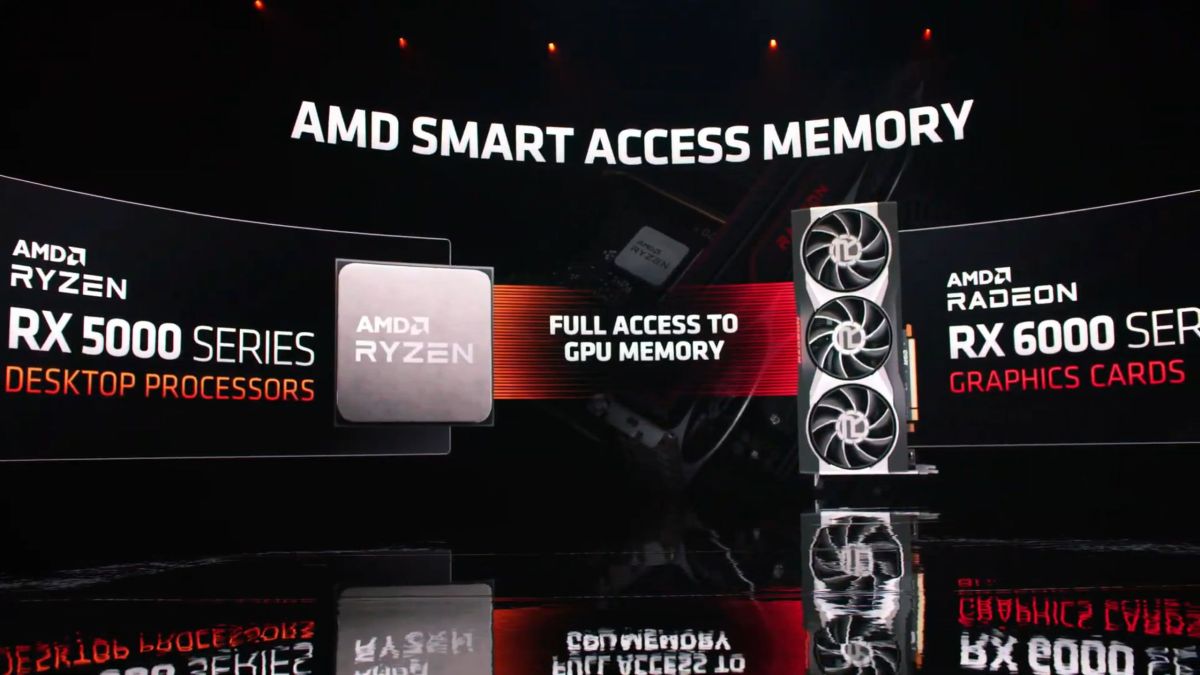
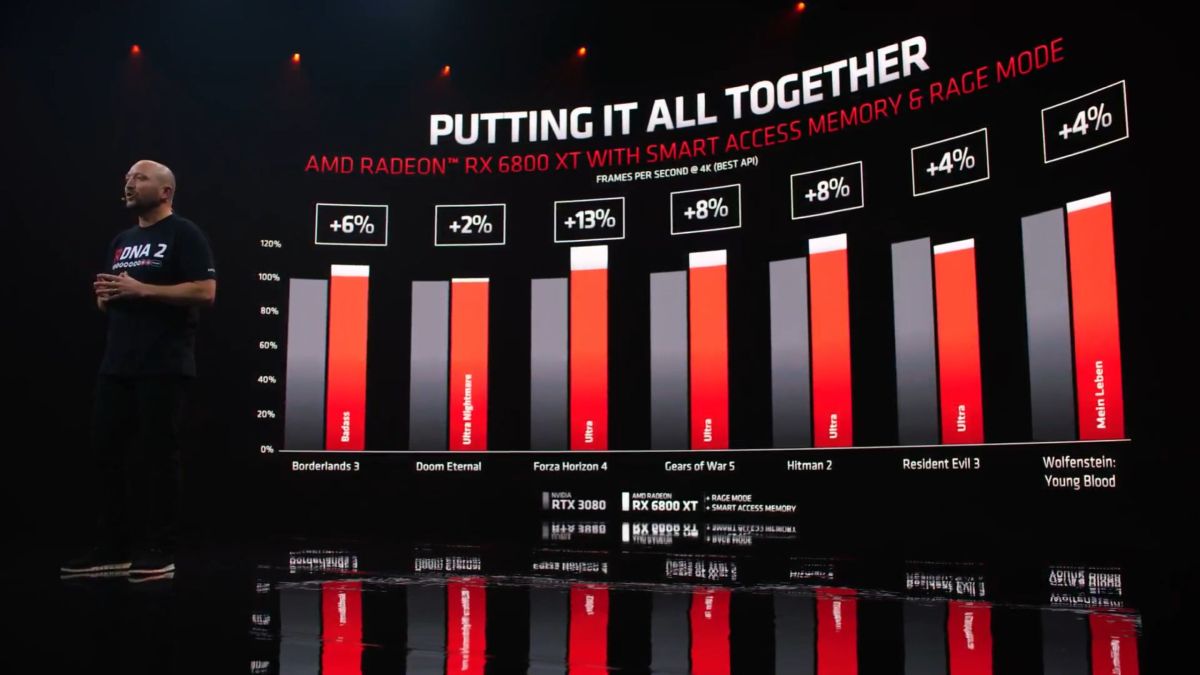
The second software feature that was presented was something called Smart Access Memory. The technology is designed to pair both AMD’s Ryzen 5000 series CPUs and Radeon RX 6000 series, allowing the former to access all of the latter’s 16GB of graphics memory. That, combined with Rage Mode, should provide a performance uplift somewhere between 2% and 13%, but that obviously varies depending on the game being played.
The third technology that AMD spoke about at length is the one that resides in all three cards: the Infinity Cache. It’s a mildly impressive feat, primarily because what AMD has done here is to refine the power consumption of the RDNA2’s 7nm process node, while also increasing the bandwidth performance of the GPU. While running games at 4K resolution and through a 256-bit memory bus, to boot.
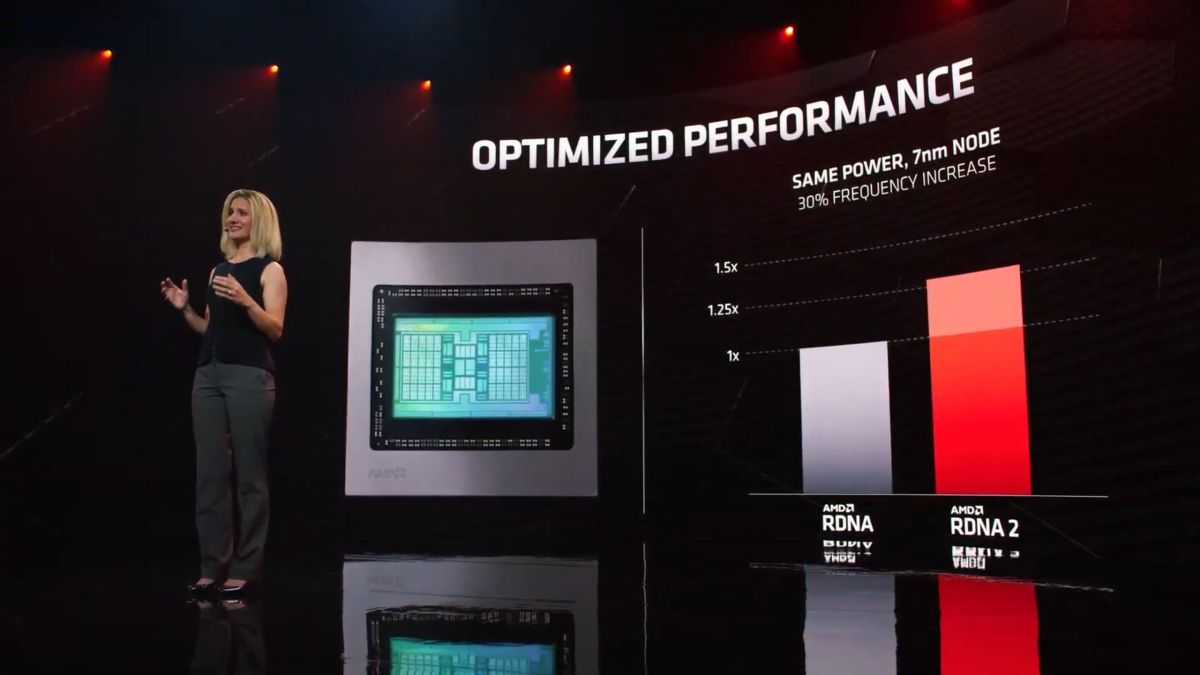
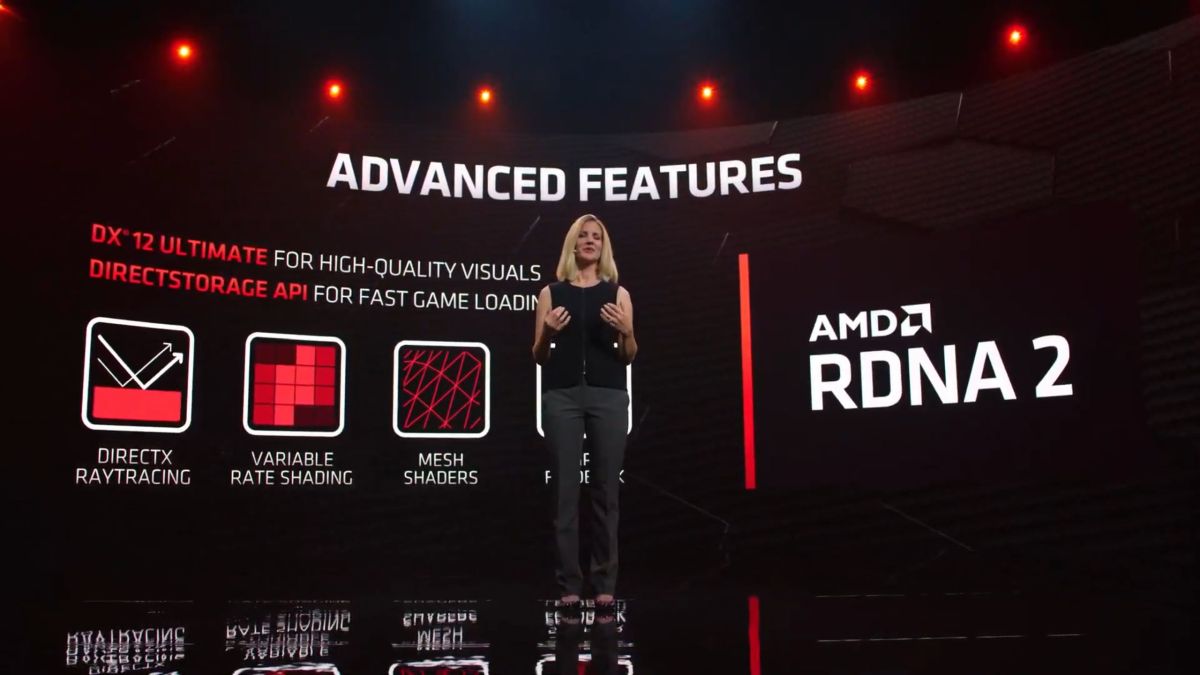
Of course, there’s also built-in ray-tracing support within the cards, but more to the point, the company also announced that the new cards will fully support DirectX 12 Ultimate, allowing them to run any ray-traced game to-date, as well as all titles that will ship out with support for the feature in the near future.
To that end, AMD also announced an updated version of its FidelityFX; it basically expanded the toolkit’s library with new tools such as a Denoiser for ray-tracing effects, a variable rate shading algorithm, support for screen space reflections and ambient occlusions, and something called Super Resolution.
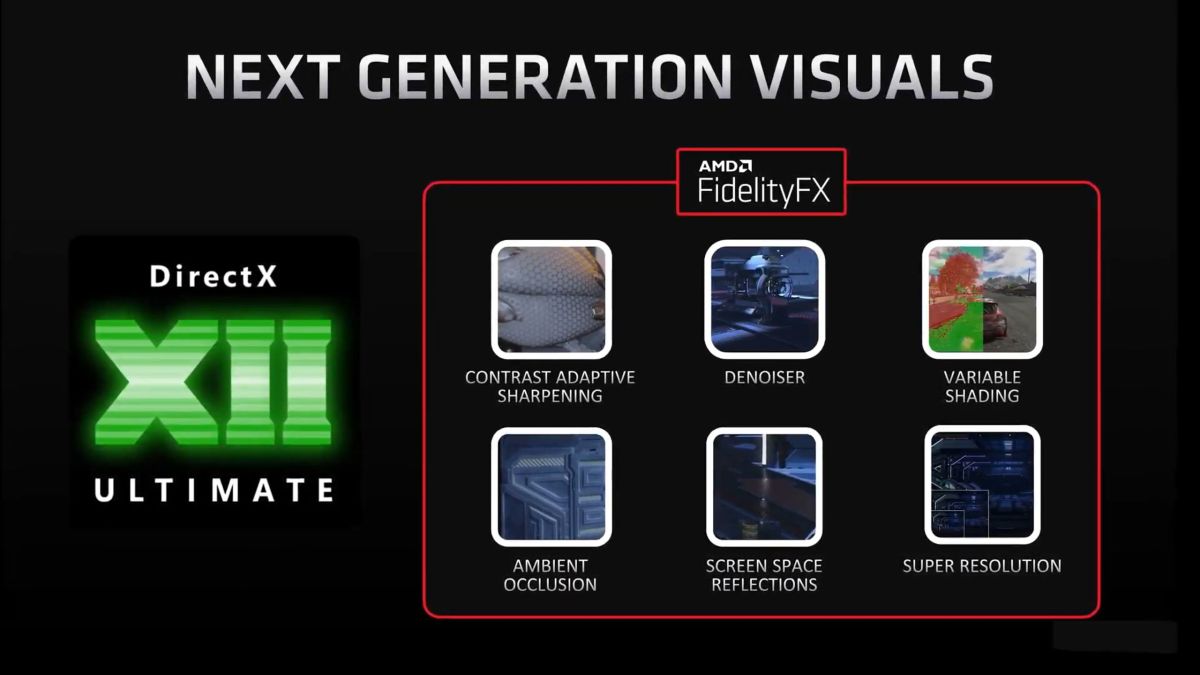
Suffice to say, we can’t wait to get our hands on all three of the cards in order to put them through their paces. With that said, keep an eye on our page for future updates.
Follow us on Instagram, Facebook, Twitter or Telegram for more updates and breaking news.


